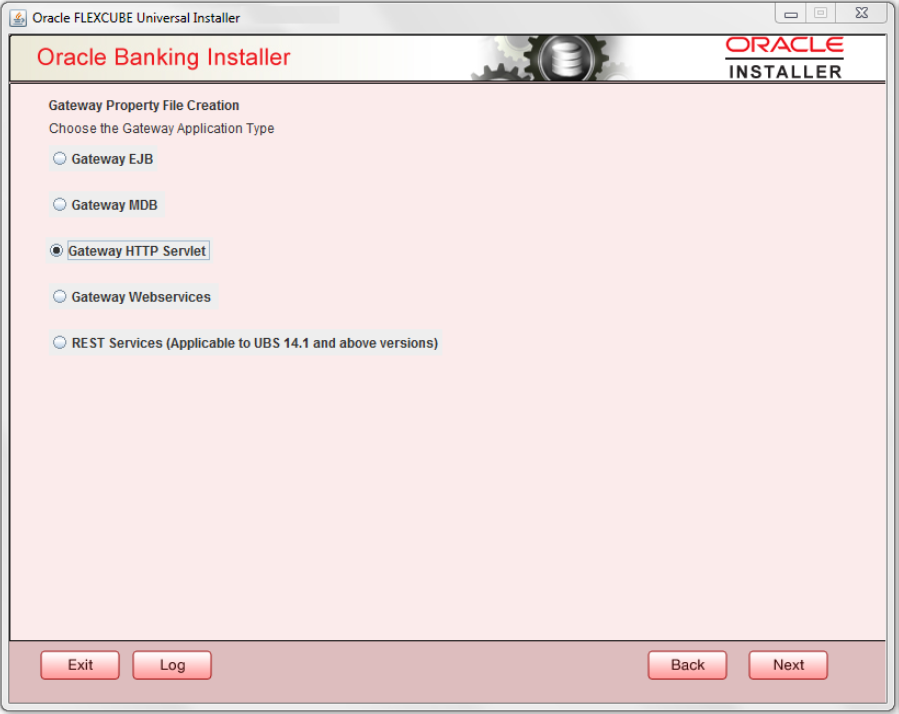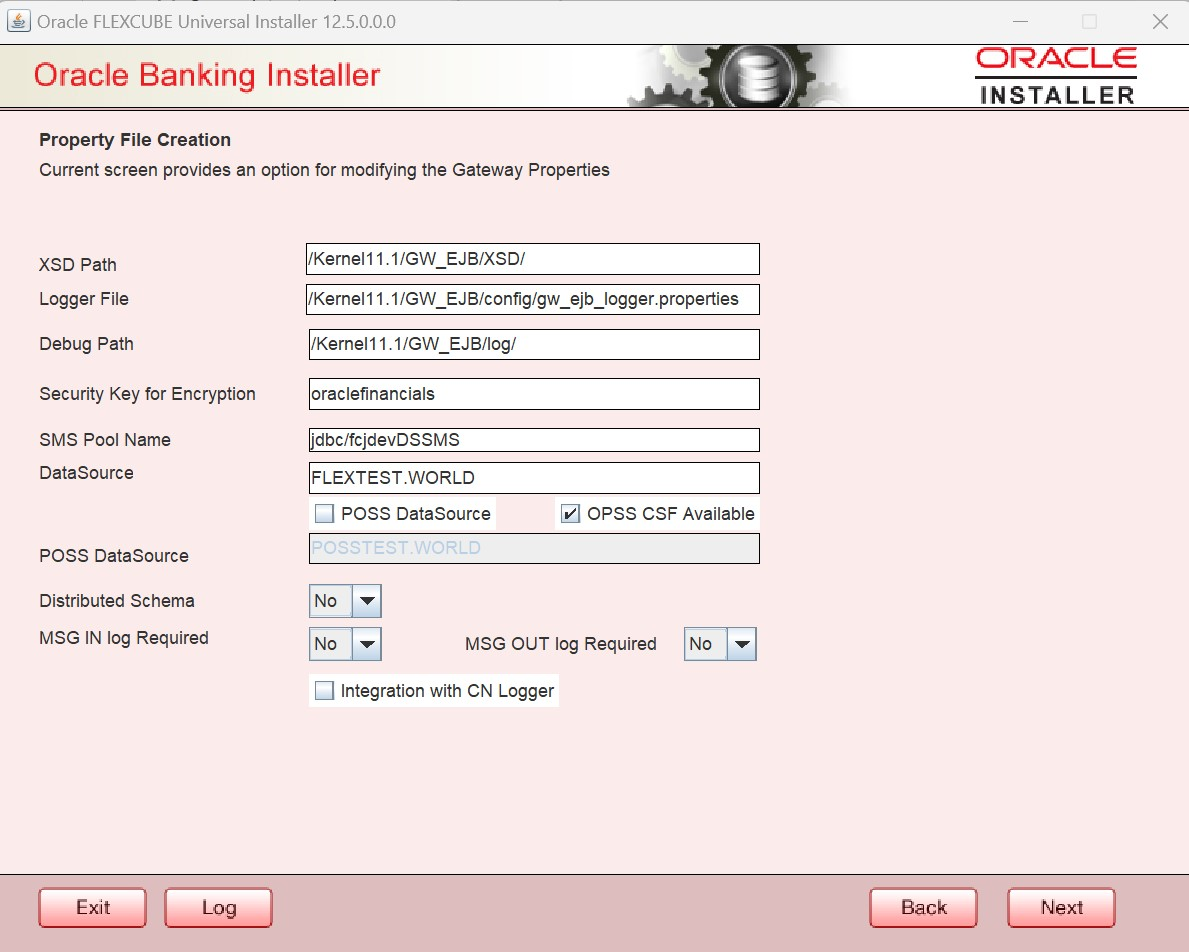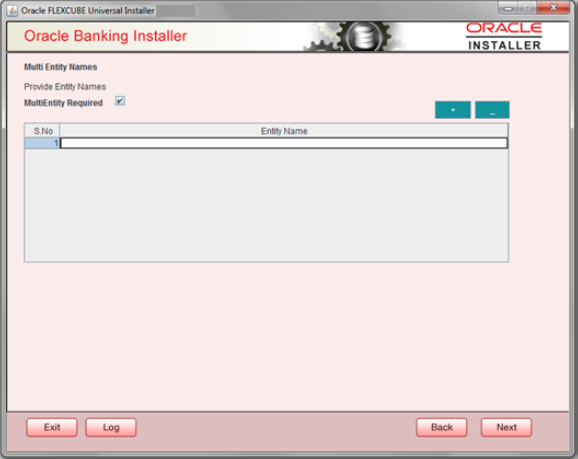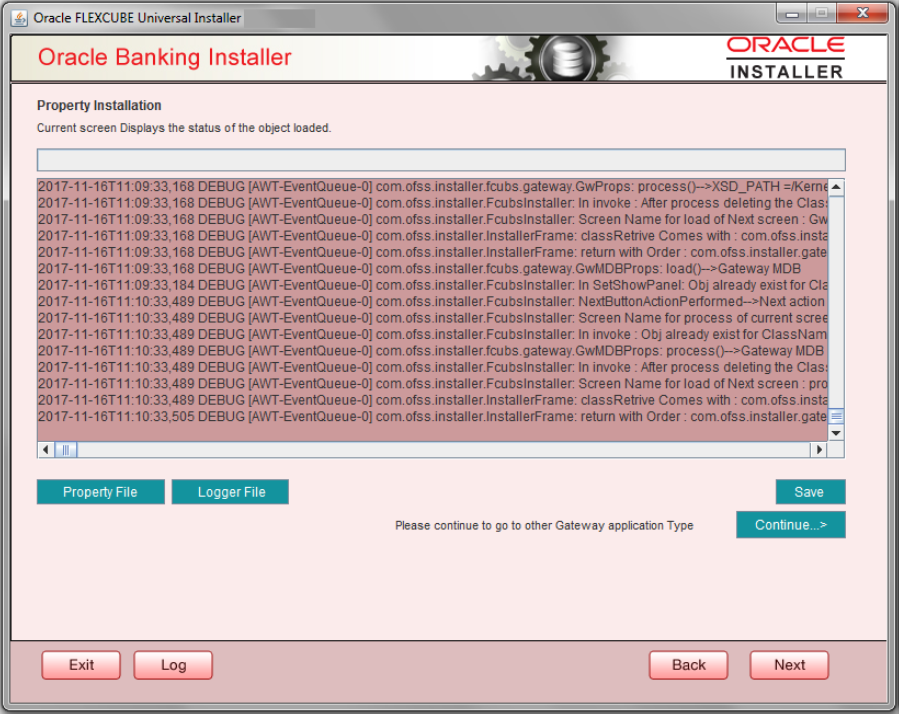- Gateway Property File Creation
- Creating Property File for Gateway Applications
- Create Property Files
- Gateway HTTP Servlet Application
1.1.3 Gateway HTTP Servlet Application
- Select Gateway HTTP Servlet as the application type as shown in the below Screen.
Figure 1-19 Gateway Property File Creation

Description of "Figure 1-19 Gateway Property File Creation" - Click Next. The following screen is displayed:The installer displays the Multi Entity screen.Click ‘Next’. The following screen is displayed:
Table 1-10 Fields
Field Description MultiEntity Required Select the multi entity check box for enabling the multi entity deployment.
After selecting the multi entity option ‘+’, ‘-‘buttons will be enabled for capturing the entity Name.
+ Button: New row will be added for capturing new entity name.
- Button Select the entity name and click – button, deletion of existing entity name will be done.
Entity Name Enter the entity name as single word.
For example: ENTITY1
Figure 1-21 Property File Creation to modify gateway properties

Description of "Figure 1-21 Property File Creation to modify gateway properties" - Specify the following details, refer the table below:Click Next. The following screen is displayed. The property file will be created in a temporary folder.
Table 1-11 Fields
Field Description XSD Path Specify the path to the XSD file. File name is not required. File separator must be ‘/’. There must be a ‘/’ at the end. All the relevant XSD files must be manually copied to this location.
Example:
For Windows: D:\Kernel11.1\GW_HTTP\XSD\
For Linux: /Kernel11.1/GW_HTTP/XSD/
Logger File Specify the path to the ‘gw_ http_logger.properties’ file with the file name. The file must be manually copied to the specified location.
Example:
For windows: D:\Kernel11.1\GW_HTTP\config\gw_http_logger.properties
For Linux: /Kernel11.1/GW_HTTP/config/gw_http_logger.properties
Debug Path Specify the path to the folder where the application creates the logs. There must be a ‘/’ at the end. You need to manually create the specified folder structure.
Example:
For windows: D:\Kernel11.1\GW_HTTP\log\
For Linux: /Kernel11.1/GW_HTTP/log/
Security Key for Encryption Specify the security key for the Encryption,here in this case it is ‘Oraclefinancialsolutions’. SMS Pool Name Specify SMS Pool Name, here in this case it is ‘jdbc/fcjdevDSSMS’. DataSource The JDBC data source is an object bound to JNDI tree and provides database connectivity through a pool of JDBC connections. POSS Datasource Check this box if POSS is required. If you check this box, you need to specify the POSS Datasource Name in the field below this. OPSS CSF Available Indicate whether OPSS-CSF is installed or not.
Please choose this only if Oracle Platform Security Services - Credential Store Framework (CSF) is installed as per the guidelines in the pre-requisite document. It is recommended that you install CSF for safeguarding application specific security credentials.
Distributed Schema If the schema is distributed, select ‘Yes’.
If the schema is not distributed, select ‘No’.
The Installer creates two files viz. ‘gw_http_logger.properties’ and ‘GW_HTTP_Prop.properties’ in the path provided to save the files
MSG OUT LOG Required Choose Yes/No from drop down box.
MSG IN LOG Required Choose Yes/No from drop down box. Integration with CN Logger Choose this check box if integration with CN logger is required. - Click Property File to view the created property file.
- Click Save to the save the created property file in desire location.
- Click Continue to continue the installation process with gateway application type.
- Click Next to navigate to the installer home screen.The property file will be created in the specified folder.
Parent topic: Create Property Files

